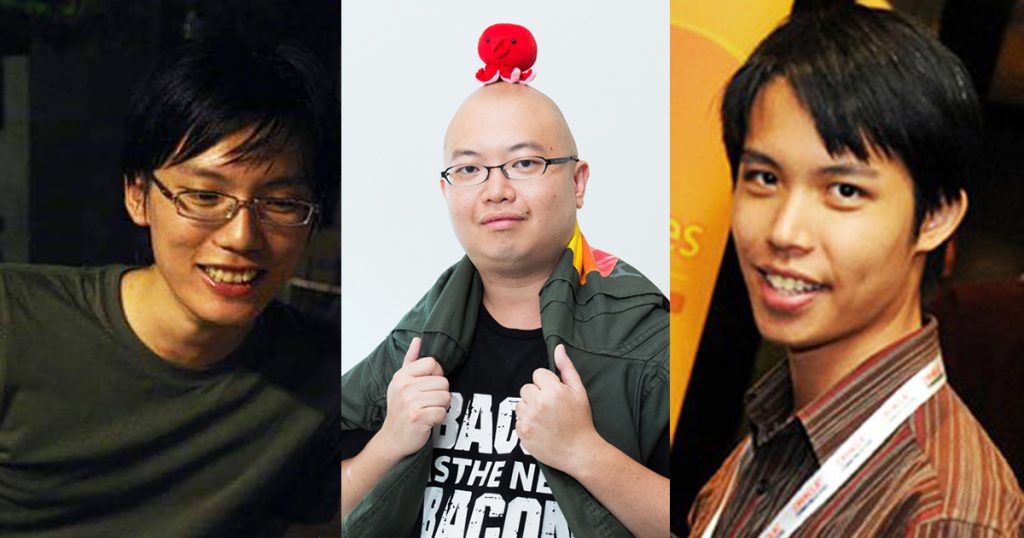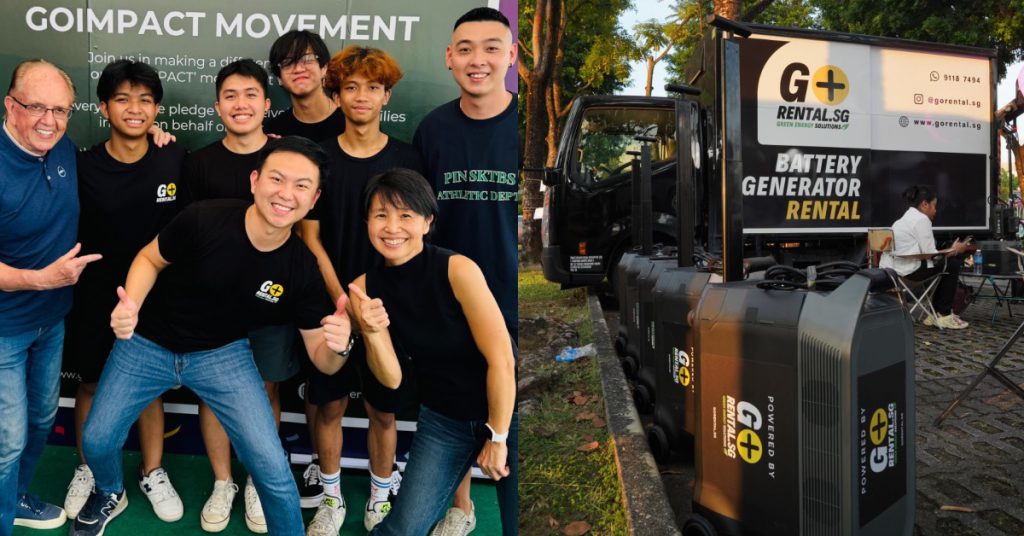- The game industry is burgeoning, but massive success stories like Fortnite, God of War, and Red Dead Redemption 2 are far and few between.
- We spoke to a few indie game developers in Singapore to find out more about the challenges they face in an industry that is arguably still in its infancy stages in Singapore, and also what drives them to keep moving forward.
Given its massive success in 2018, online battle royale game Fortnite has become a cultural phenomenon.
It has also become a sweet source of income for its developer and publisher Epic Games, reportedly generating US$2.5 million in revenue daily – no mean feat for a free-to-play game that makes profits off in-game purchases.
The game made the company US$3 billion in profits in 2018, and also made founder and CEO Tim Sweeney a new entrant to Bloomberg’s Billionaires List.
For someone who started Epic Games (then a computer consulting business called Potomac Computer Systems) in his parents’ house, Sweeney is like a Mark Zuckerberg or Jeff Bezos of game development – one of the very rare success stories among a multitude of untold ventures that flopped.
Desmond Wong, co-founder and CEO of The Gentlebros, an indie game development studio in Singapore echoes the sentiment.
Don’t be fooled by all the successful stories, because those are the only ones you’ll ever hear. With every successful game, there are literally thousands of others that have failed. The odds are seriously not in your favour.
According to Travis Ho, director of Touch Dimensions, being a game developer is even tougher when you’re based in Singapore.
“There’s a joke that if game development was a game in itself, Singaporean devs would pick the hardest difficulty level.”
He explained: “Financing is rare, operating in Singapore is expensive, hiring is difficult and the culture is risk-averse.”
With a small domestic market, local developers need to set their sights overseas – even if they “aren’t often super familiar with these larger markets”, shared Shawn Toh, co-founder and CEO of BattleBrew Productions.

“Singapore being a mix of East and West brings its advantages yes, but in some ways it can also mean we don’t quite fit in to a specific market. Positioning, then, is sometimes an issue,” he added.
But in spite of the sobering reality, developers in Singapore like themselves have not given up on their dream to create games that gamers (fans of both the AAA titles and indies) will love.
Here are the 3 local indie developers’ dreams, motivations, and the misconceptions they’d like to dispel.
Not All Fun And Games
First of all, they want you to know that being a game developer doesn’t mean that you get to play games the whole day.
In fact, it’s pretty much the opposite.
“Something closer to the truth would be long hours and building things you hope people care about,” said Shawn.

Travis revealed that indie studios need to spend so much time working on games that at their studio, “deliberate effort [is made] to encourage people to play more […] to stay up to date and understand what everyone else is playing”.
He added that the job doesn’t mean that you’re solely building your ‘dream games’ either.
“There are many, many different kinds of players out there, and not everyone shares the same taste or dreams or even skill level!”
In the end, there is the realisation that you are building games for others and not for yourself alone. We build games to entertain and delight all our friends, and to this end we shouldn’t exclude others.
Then there’s the misconception that games with simpler mechanics/less content are low-hanging fruit for developers who want to make a quick buck.
“[Some think that] it’s easy to make ‘small’ games, and easy to make a lot of money,” quipped Desmond. “Game development is extremely hard, even for the smallest of projects. It’s not as easy as some people might think!”
“And all the ‘bad’ games you see in the market? Those were the results of months, or even years, of hard work as well. No one sets out to make a bad game right? But such is the nature of the beast,” he sighed.
Pursuing A Childhood Dream
For all 3 of them, the love for video games stemmed from childhood.

“They were a way to explore other worlds,” reminisced Shawn.
Figuring I could make such worlds for a day job didn’t take much convincing.
Growing up with parents who were careful in keeping him away from distractions like computer games, Travis mostly played games vicariously through others.
However, this did not dampen his interest, and he even came up with a way to get around his situation.
“I figured that the only way I’d get to play something was to make it myself, and so I tried my best – what I didn’t have in graphics I filled in with my own imagination. I could only draw simple shapes on screen, so circles became spaceships and lines became lasers – but to me, those were the best games ever!”
“Hey, You Sure You Don’t Want To Be A Doctor?”
Not just a fleeting childhood dream, their choice to pursue game development as a career endured even as the years went by.
Fortunately for them, their families and friends were mostly supportive, if not expressing concern about the prospects of the rather unconventional path.
“There was the obligatory ‘Hey, you sure you don’t want to be a doctor?’, but I managed to convince them that this was my true passion, and if I really liked it, I would be able to do well in it,” said Desmond.

Added Shawn: “Mostly I think [my family members] were very supportive but worried about things like long work hours. Later on as the work I did got more external validation, they were less worried.”
“It’s still a tough industry though.”
While being a game developer might sound like a ‘cool’ job (particularly to millennials) these days, Travis remembers when the industry wasn’t portrayed in a similar light.
We have almost forgotten how much skepticism there was about the industry in the past.
“When I received a scholarship from the International Game Developers Association at an event in San Jose, my parents were proud to attend. At some point that night however, they approached a famous game developer, not knowing how successful his games were, and asked with some concern, ‘Got future or not?’,” he recalled.
“The Market For Games Has Never Been More Saturated”
When asked about the challenges indie studios like theirs face, the answer was unanimous – getting gamers to notice their creations.

“Face it, we’re a super small country in a region extremely far from where all the [headliners] are being made,” remarked Desmond.
The industry in Singapore is also very young compared to USA and Japan. Where there are success stories and experienced developers available to teach the next generation, I think the Singapore industry is still trying to grow its legs.
He noted, though, that “it’s great that big companies like Ubisoft have set up roots here, as this is the influx of experience and growth that [Singapore’s games industry] needs”.
“The growth of the games industry has been a double-edged sword for developers: today, it’s easier than ever to build a game, but the market for games has never been more saturated,” reiterated Travis.
All of them readily admitted that there have been times when the going got so tough that throwing in the towel seemed like the better option.
Revealing that he had thought of giving up “many times”, Shawn compared running an indie studio to steering a “tiny boat in a raging ocean”.
Much larger ships with more resources (bigger game studios) seem to have an easier time with the waves, and we just have to make do with what we have, navigating both the storm and the eddies created by these other ships.
“Sometimes development is so hard, and it seems nothing is working. Then you think of how much work is ahead of you, and you wonder if it’s all even possible,” said Desmond.
“Add in the fact that you might not be able to pay the bills in a month or two, and it starts to look really dire.”
Benefitting From Google’s Indie Games Accelerator
Fortunately, indie game developers like themselves have a new lifeline – Google’s Indie Games Accelerator.
The Accelerator is a programme for indie game startups who are looking to “supercharge” their growth on Android.
The programme is designed in close collaboration with Google Play, and feature comprehensive comprehensive gaming curriculum (covering aspects in game development, business development, and team development) and mentorship from mobile gaming experts.
Startups chosen for the programme also get to attend two all-expense paid gaming bootcamps at Google Asia HQ in Singapore, an opportunity to be showcased on Google Play, invites to exclusive events, and US$20,000 in Google Cloud Platform and Firebase credits.

Desmond, Shawn, and Travis are part of Indie Games Accelerator’s 2018 batch of startups, and have nothing but praise for it so far.
“I got to meet some legends from the gaming industry like Matt Hall and Mark Skagg,” gushed Shawn.
Getting them to dissect your work and also just knowing that they faced similar struggles is an amazing experience.
“We also got more insight into the Google side of things (like different facets of Google Play) and a little bit of what goes on behind the scenes, and that was really helpful.”
Travis, who heard about the programme via social media, applied for it in hopes that the knowledge gained could help the studio and its current project.
“And it did! One major draw was the access to the overseas mentors in the industry, as well as personalised support from the Google Play teams. Making such connections definitely helps any new startups who want to put their products on the Play Store,” he said.
Game startups interested in the programme may apply here for updates on 2019’s intake.
There’s No ‘Game Over’
Ending off the interview, I asked them about the fire that keeps their flames going in spite of challenges that can sometimes seem unsurmountable.
“Definitely seeing people enjoy your game,” said Desmond.

“After months of a game not being fun, and feeling extremely low in morale, simply seeing someone say your game is fun is a great morale booster. It’s why I personally keep doing what I’m doing. I just want to see people smile and have fun with something we made.”
Quipped Travis, “Launching a successful game is an experience you don’t ever forget. You put a part of your soul into each game you build, and you share that creation with every player will play your game.”
The reviews, features, awards, and fan mail are a recognition of all those years of hard work, sleepless nights and crunch time, and that makes it all worthwhile.
I’d like to thank Desmond, Shawn, and Travis for their time!










